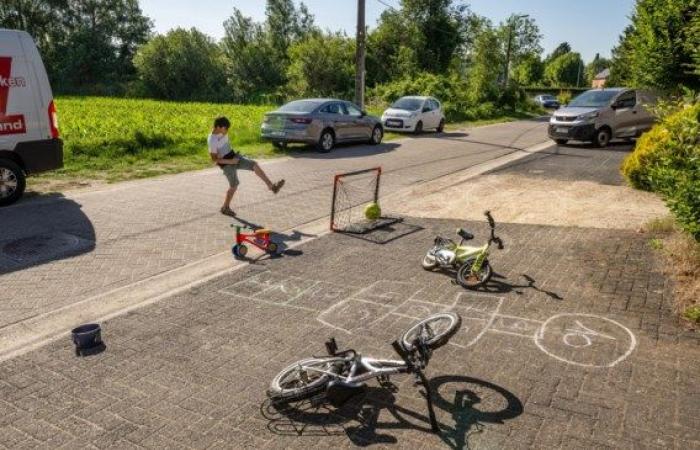“The biggest problem is the Growth Package (the name of the new child benefit system, ed.) is now mainly used as a cash cow for the budget and other projects.” Jeroen Sleurs, general director of the Gezinsbond, makes no bones about it in a response to the study by the Social-Economic Council of Flanders (Serv) on child benefits. The consultative body of the Flemish social partnersidentified some shortcomings (DS April 26).
Sleurs points out that the Flemish government has saved more than one billion euros on child benefits in recent years, compared to the federal grant that the Flemish government receives for this. She did this by not fully implementing the indexation of child benefits.
As a result of these savings, the basic amount of child benefit no longer covers 50 percent of the minimum costs for children, but only 40 percent, and in some specific situations even barely 20 percent, the Gezinsbond calculated. For families with a social allowance, the coverage rate is still only 50 percent, although the target group has been expanded since last year. About one in three children is entitled to the allowance.
Promotion trap
The child benefit file has therefore become particularly politically charged. CD&V chairman Sammy Mahdi says he will not join the next Flemish government if child benefits are not fully indexed again.
For Vooruit, the figures prove that the Flemish government has made the wrong political choices. “It is time for another party to take over,” says Flemish Member of Parliament Hannes Anaf.
Groen proposes a reform of child benefits, with social allowances gradually increasing when income is lower. This should avoid a situation that the Serv pointed out: families have less net left over when their income increases, because their social allowance is reduced by that increase in income – the so-called promotion trap.
Unjust
Sleurs says he is taking a constructive stance, but has reservations about proposals such as those of the Serv and Groen. “When will the difference between child benefit for everyone and for families with a social allowance be big enough?” he asks. “And when does it become unjust?”
He fears that popular support will be undermined if the difference becomes too great. “A family with a university student who only receives the basic amount is in a number of cases financially worse off than a family with the same students who receive a social allowance, student grants and preferential rates in student housing.”
The Family Association points to efficiency gains that are still possible, such as the abolition of inefficient allowances and payment through five child benefit funds. He rejects Vooruit’s proposal to use part of the child benefit for free meals. “Letting all children eat at school to solve the problem of empty lunch boxes seems disproportionate to us.”
Unemployment trap
According to professor of labor economics Stijn Baert (UGent), a reform in which the social allowance is adjusted as income rises should be perfectly possible. He refers to the job bonus, where something similar is already happening.
Baert does pay more attention to other perverse situations in which people are discouraged from working because the financial difference between working and unemployment or inactivity is too small. For single people with a low income, it is therefore hardly worthwhile to exchange unemployment for a job.
Moreover, some benefits, such as discounts on the bus or water bill, are linked to their social status (e.g. unemployed) and not to income, which threatens to make working even less attractive.
The Flemish and federal coalition agreement contained proposals to do something about this, but except for the social rate for gas and electricity, which is now linked to income and no longer to the status of the person concerned, little has changed, says Baert fixed.






